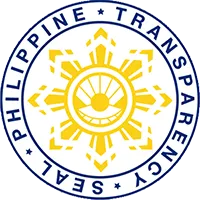
A pearl buried inside a tightly-shut shell is practically worthless. Government information is a pearl, meant to be shared with the public in order to maximize its inherent value. The Transparency Seal, depicted by a pearl shining out of an open shell, is a symbol of a policy shift towards openness in access to government information. On the one hand, it hopes to inspire Filipinos in the civil service to be more open to citizen engagement; on the other, to invite the Filipino citizenry to exercise their right to participate in governance.
This initiative is envisioned as a step in the right direction towards solidifying the position of the Philippines as the Pearl of the Orient a shining example for democratic virtue in the region.
By virtue of R.A. No. 10687, the UniFAST’s mandate is to harmonize, reform, strengthen, expand, rationalize, and re-focus all legislated or on-going Student Financial Assistance Programs of the government for greater efficiency, coherence, synchronization, effective funding, and improved coordination among implementing entities in their specific jurisdiction. With the passage of R.A. No. 10931, the UniFAST is mandated to implement Free Higher Education in SUCs and CHED-Recognized LUCs, Tertiary Education Subsidy, Student Loan Program, and, through the TESDA, the Free TVET and TES for TVET.
The Board exercises the following powers and functions:
The Secretariat exercises the following functions:
By virtue of R.A. No. 10931 or the Universal Access to Quality Tertiary Education Act, the administration of the Tertiary Education Subsidy (TES) and the Student Loan Program (SLP) pertains to the UniFAST. By virtue of UniFAST Board Memorandum Circular No. 2018-02, part of the processing of Free Higher Education billings of SUCs and CHED-Recognized LUCs, specifically with respect to the evaluation of billing submissions, is assigned to the UniFAST Secretariat – Central Office. Lastly, by Special Provisions of the GAA starting FY 2020, the UniFAST also administers the Tulong Dunong Program.